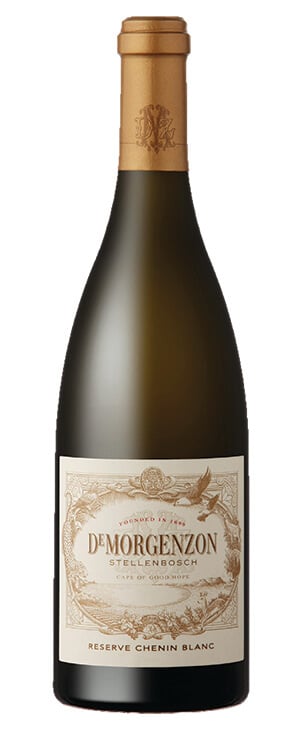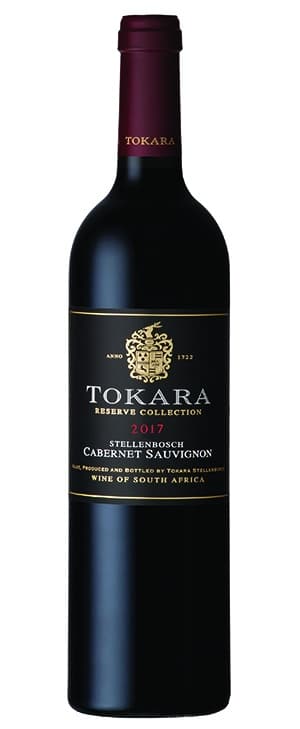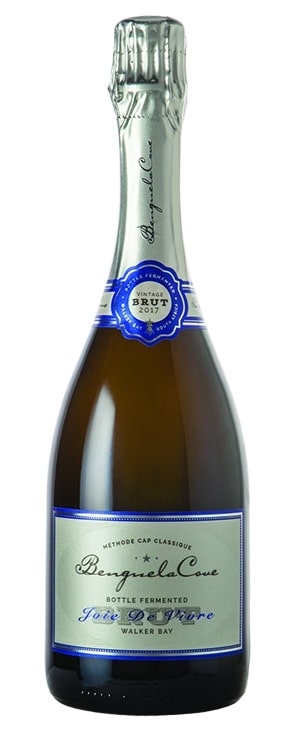The 20 Best Wines in South Africa 2020
By Christian Eedes, 9 December 2020

14

Introduction
Winemag.co.za reviewed a total of 927 wines across 20 wine categories in its various reports sponsored by multinational financial services company Prescient over the course of the year. Each report was based on the outcome of a blind tasting of wines entered within the specific category.
A Top 10 was then announced with the release of each successive report. Now the individual best wine per category plus ratings on the 100-point quality scale for all the Top 10 wines can be revealed.

Winery of the Year: Tokara
Acquired by businessman and banker GT Ferreira in 1994, Tokara in Stellenbosch (with vineyards in Elgin as well) is now firmly entrenched as one of South Africa’s top wineries. Aidan Morton is the long-serving viticulturist here while Stuart Botha, previously of Eagles’ Nest, took over from the accomplished Miles Mossop mid-2017.
The property earned a Top 10 spot in every Prescient Report it entered this year, the wines to feature being: Director’s Reserve White 2017, Reserve Collection Chardonnay 2019, Director’s Reserve Red 2017, Reserve Collection Cabernet Sauvignon 2017 and Reserve Collection Syrah 2017. Moreover, three of these – the white blend, the Chardonnay and the Cabernet Sauvignon – were judged best in category.

Best White Wine Overall
Best Chenin Blanc
DeMorgenzon Reserve 2018
Price: R430


Best Red Wine Overall
Best Cabernet Sauvignon
Tokara Reserve Collection 2017
Price: R330


Best Cap Classique
Benguela Cove Joie de Vivre 2017
Price: R240

Category |
Wine |
Score |
| Best Cape White Blend | Cavalli Cremello 2017 | 95 |
| Best Chardonnay | Tokara Reserve Collection 2019 | 95 |
| Best Niche White Variety | Vergelegen Reserve Semillon 2018 | 93 |
| Best Sauvignon Blanc – Unwooded | Lanzerac 2019 | 93 |
| Best Sauvignon Blanc – Wooded | Mulderbosch 2019 | 94 |
| Best Sauv-Sem Blend | Tokara Director’s Reserve White 2017 | 95 |
| Best Cape Bordeaux Red Blend | Zorgvliet Richelle 2017 | 95 |
| Best Merlot | Vergelegen Reserve 2015 | 93 |
| Best Niche Red Variety | Raats Family Cabernet Franc 2017 | 94 |
| Best Pinotage | B Vinters Liberté 2018 | 94 |
| Best Pinot Noir | Flying Cloud Sovereign of the Seas 2018 | 94 |
| Best Shiraz | Leeuwenkuil Heritage Syrah 2017 | 94 |
| Best Signature Red Blend | Rust en Vrede Estate 2017 | 93 |
| Best Muscadel | Nuy Rooi Muskadel 2010 | 94 |
| Best Noble Late Harvest | Delheim Edelspatz 2019 | 93 |
| Best Port-style | De Krans Cape Vintage Reserve 2016 | 94 |
| Best Straw Wine | Villa Esposto Muscat d’Alexandrie 2017 | 92 |
Find out more
For tasting notes plus scores of all the Top 10 wines, download the following: Prescient Top 20 Wines South Africa 2020
Shop online
Johannesburg boutique wine retailer Dry Dock Liquor is offering a selection of the best in category wines for sale – buy now.







Douglas Downard | 4 January 2021
Thanks Christian for the Prescient best wine series. Quite a remarkable effort in both scope and publication. The absence of South African international darlings and superstars is glaring. Why don’t the likes of A.A. Badenhorst, Sadie family and Mullineux participate? This undoubtedly speaks to FredF’s questions about the highest ratings at 95. They are not doing themselves and the S.A. wine scene any favors by not participating. How do you think this will play out in the future? Once again, congratulations on this successful effort to inform South African fandom.
Doug
Houston, Texas
Christian Eedes | 5 January 2021
Hi Doug, Thanks for the vote of confidence. As to the questions you pose, no easy answers. I suspect that quite a few producers at the top end of the market are trying to position themselves less as wines of South Africa and more as wines of terroir comparable to the best in the world and hence worthy of a price premium – this involves identifying a receptive audience followed by relentless assertion of credentials while avoiding all potential negative feedback like a low-ish rating in a blind tasting. While this is not good for Brand SA in a generic sense, it’s ultimately a matter of economic survival and to some extent we all have to accept this as the reality of the situation.
FredF | 11 December 2020
Hi Christian
I find it quite strange that according to your report the best the cape has to offer is 95 points. I’m by no means saying 95 is a bad score by any stretch of the imagination but surely there is something better than a 95 especially with some stellar 2017’s coming to market. I’m not suggesting that you inflate scores to pander to the industry it’s just an observation that I would love to hear your thoughts on. SA fine wines are world class so it’s just interesting to note that the scores are so “modest”?
Christian Eedes | 11 December 2020
Hi FredF, The short answer is that: 1) panel scores are often going to be a point or two lower than a score generated by an individual – there’s inevitably an averaging effect at work; and 2) all comers are welcome to submit their wines and we taste blind – this also compels the panel to be a bit more cautious when it comes to dispensing really big scores.
Some producers have made the argument to me that the reason they don’t participate in panel tastings is that their wine is not being assessed according to the aesthetic of a single individual but is instead being subjected to a sort of groupthink that leads to less controversial wines being rewarded – I would counter that if each of your panel members is sufficiently knowledgeable, experienced and confident in his or her opinion (as I believe is the case with winemag.co.za), then the process is that much more rigorous and the outcome that much more trustworthy compared to a single individual tasting sighted.
It is, of course, the prerogative of a producer not to participate in a blind panel tasting but then consumers are entitled to question any subsequent claims as to superiority that producer might make.
Top Wine SA | 11 December 2020
Absolutely! Invariably, wine producers who steer clear of blind-tasting assessments by panels comprising expert wine judges are either lacking in confidence or know their product isn’t No. 1 or Top 10 and won’t hear of anything less. Those who only submit their wines for assessment by an individual who knows what he or she is reviewing are asking for such scores to come into question.
Kevin R | 10 December 2020
Congrats to Winemag on this report.
Very respectable results plus the results of sighted tastings have not been thrown into the mix – comparing apples with apples.
Erwin Lingenfelder | 10 December 2020
What did you think of my Cape Claret suggestion?
Christian Eedes | 10 December 2020
Hi Erwin, It’s not without merit but 1) such a re-branding initiative probably needs to be producer-driven and 2) will take a lot of time and effort to succeed in any event.
David | 10 December 2020
Erwin. I would suggest a rebranding should take out any french reference in the title of the wine. Claret (Clairet) is just another word for Bordeaux. I think local SA pride should find it´s own description especially since even when using the same grapes they dont really have much in common in terms of taste, the SA version being from higher temperatures and more fullbodied. Should develop their own branding otherwize they would just be unfairly compared to their french counterparts.
Jules | 10 December 2020
David – Claret is a largely British term for red wine from Bordeaux, not much in use elsewhere and on the wane even in the UK (it’s rather “old school”; I grew up with it, but millennials less so). It is also used occasionally to denote a colour, notably in tying flies for trout/salmon fishing.
Clairet however, on which the word Claret is assumed to be based, is still an active French term for a type of Bordeaux pink wine, a rather dark shade of pink, which when well made & chilled is delicious. It has its own appellation.
I disagree that SA ‘Bordeaux blends’ don’t have much in common with their French counterparts, in fact quite the opposite. Agreeably different yes, but certainly cut from the same cloth.
Mike | 10 December 2020
Agreed regarding Claret as a no-no for South African wine, but temperature wise… There doesn’t seem to be much difference these days between the summertime averages in Bordeaux vs Stellenbosch, i.e. both around 27 deg C.
Jules | 10 December 2020
The problem is that the Bordelais slowly started making wines with increased alcohol levels about 40 years ago. The average alcohol level in Bordeaux reds has increased about 20 – 30% over the last half century. The more subtle wines enjoyed by the ‘Claret generation’ (around 12°) have in many cases given way to blockbusters at closer to 14°.
This stylistic change was perceived to be an answer to the downturn in the fortunes of Bordeaux and the threat posed by New World wines, whose higher alcohol levels were thought to be winning admirers. Climate has something to do with it, but in the case of Bordeaux, it has more to do with winemaking.
Mike | 11 December 2020
So Bordeaux vs Stellenbosch has more to do with the winemaking… And less to do with north vs south of the equator…
James Mark | 16 December 2020
@Jules on the alcohol levels – probably just after the 1976 judgement of Paris competition between France & the USA when the French got beaten by higher alcohol wines from California…. ?
@Mike – interesting the average max temps are BDX 23.9c (May – Sept) and SBH 26.5c (Nov-March) per Climate-Data.Org & Average Growing season Temps per Jancis Robertson World Atlas of wine (8th Edition) are BDX 17.7c & SBH 19.7c – so yes ~2+ degrees difference
Great article Christian, and why don’t we just use Cape Blend? This would allow the cape to use any number of varieties from the BDX Stable and include Shiraz/Syrah and Pinotage. The BDX blends are limited to the 5 grape varieties but almost never use Malbec and generally its only CabSav & Merlot dominant with CabFranc or Petit Verdot being the fillers….. so allowing the Cape to use 5 plus their own grape Pinotage and then Syrah too would be all encompassing……. just a thought.
Mark